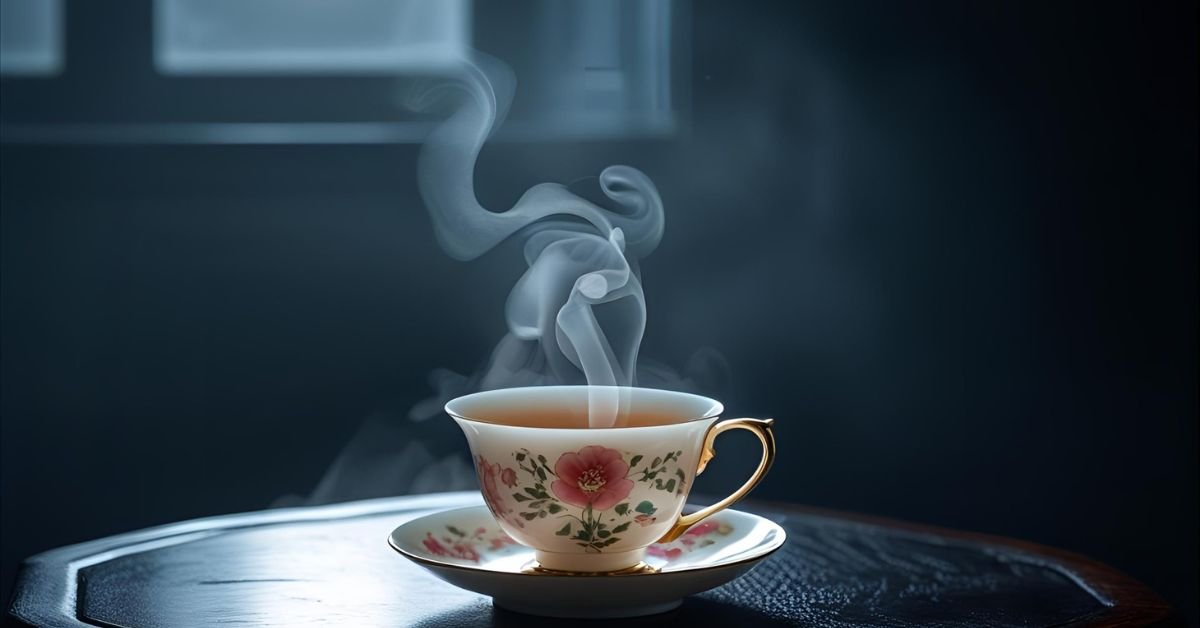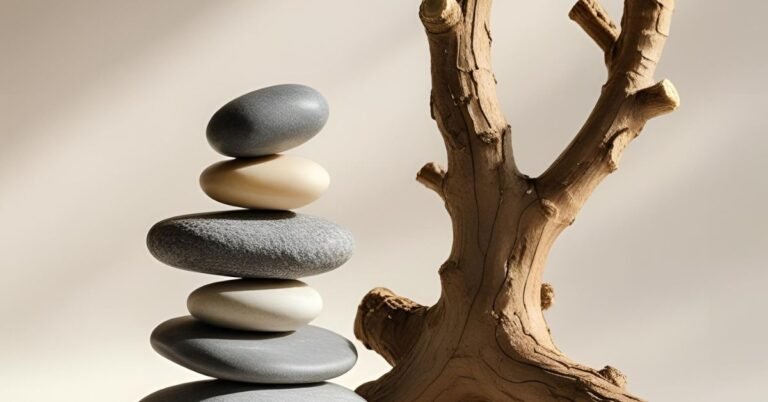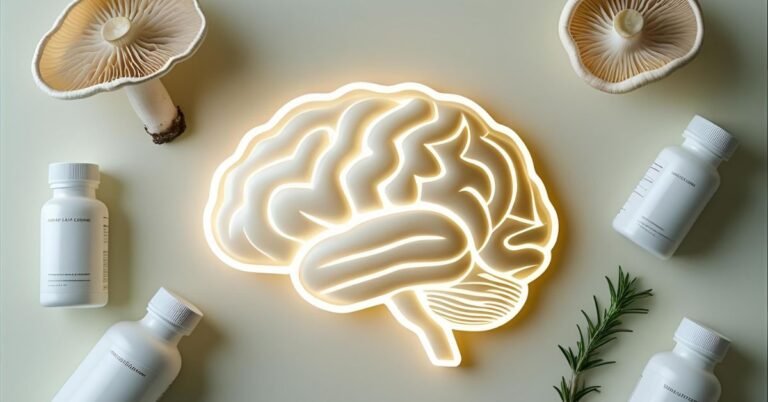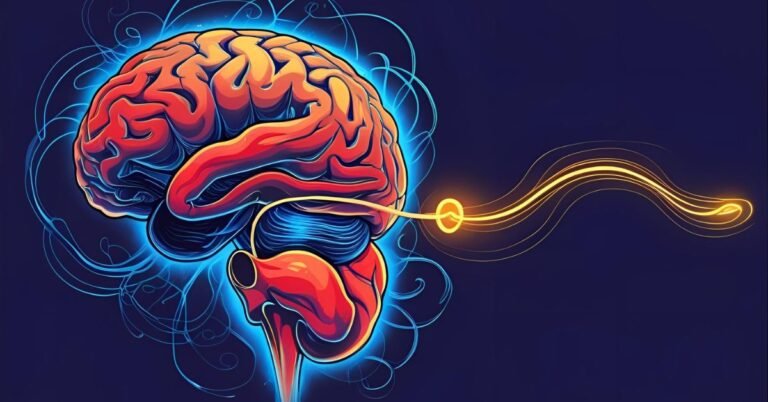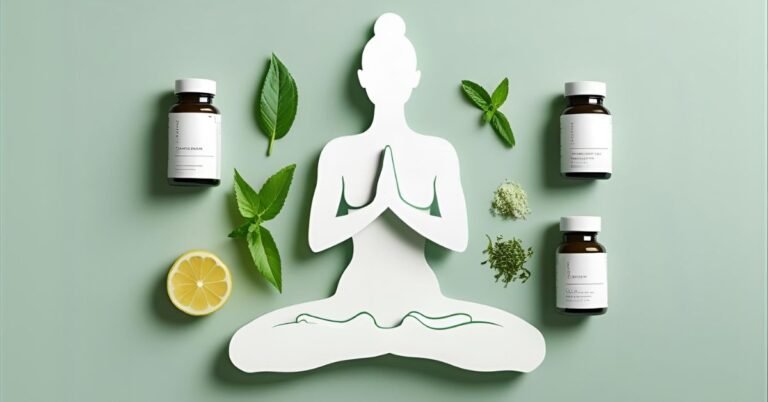Best Tea for Sleep and Relaxation: The Ultimate 2025 Guide 🍵🌙
Finding the best tea for sleep and relaxation can feel like discovering a warm, comforting secret to ending your day on a peaceful note. In a world that constantly demands our attention, the simple act of brewing a cup of herbal tea is a powerful ritual that signals to your body and mind that it’s time to unwind.
But not all teas are created equal. While some are designed to energize, others contain powerful plant compounds that can soothe anxiety, calm a racing mind, and gently guide you toward a night of deep, restorative sleep.
This guide is your key to understanding which herbs are scientifically proven to work. We’ll explore the mechanisms behind the most effective sleep teas, review our favorite blends on iHerb, and help you choose the perfect brew for your nighttime routine.
🔑 Key Takeaways
- Top Sleep Herbs: Chamomile, Valerian Root, and Lavender are the most scientifically backed herbs for promoting sleep and relaxation.
- How They Work: These herbs contain compounds (like Apigenin and Valerenic Acid) that interact with GABA receptors in the brain, which helps to reduce anxiety and initiate sleep.
- The Ritual is Key: The act of preparing and sipping warm tea itself is a powerful stress-reducer that can enhance the tea’s benefits.
- Consistency Matters: While one cup can be calming, the full benefits for sleep quality are often seen after consistent use.
Table of Contents
Why a Cup of Tea is a Cornerstone of Calm 💡
Before we dive into specific herbs, let’s cover the “why.” The connection between a warm beverage and relaxation isn’t just psychological. Many herbs used in sleep teas contain active phytochemicals that directly influence your brain chemistry.
- Deeper Mechanism: The most common mechanism involves the neurotransmitter GABA (gamma-aminobutyric acid). As we’ve discussed with Ashwagandha for stress relief, GABA is the brain’s primary “brake pedal,” reducing neuronal excitability and promoting a state of calm. Compounds in herbs like chamomile and valerian root are known to bind to these same GABA receptors, essentially enhancing this calming effect.
- Data Callout: 📈 A 2019 meta-analysis published in Phytotherapy Research confirmed that chamomile demonstrates a significant ability to improve sleep quality and reduce symptoms of generalized anxiety disorder.
By choosing the right tea, you are leveraging ancient wisdom backed by modern science to actively support your body’s natural sleep process.
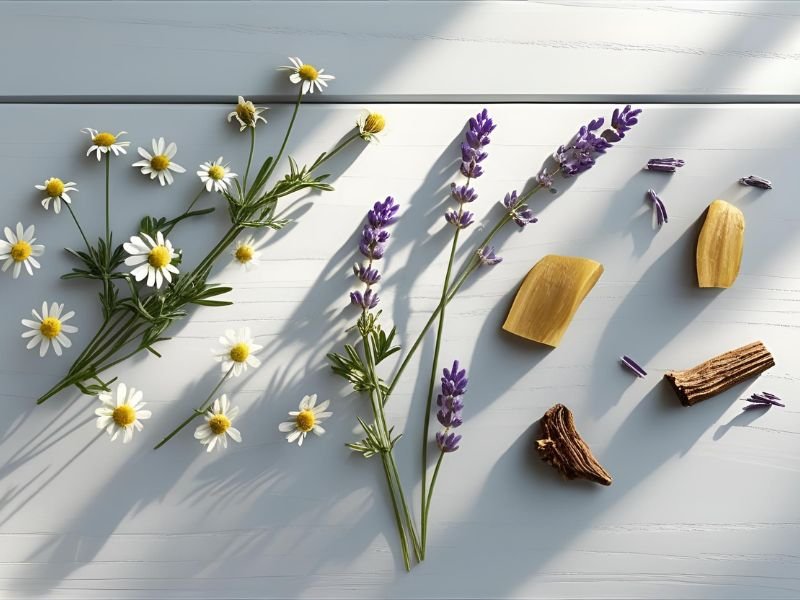
The Top 3 Herbs for Sleep and Relaxation 🌿
Ready to find your perfect match? Here are three of the most effective and well-researched herbs.
1. Chamomile: The Gentle Sedative
This daisy-like flower is the undisputed champion of calming teas. Its gentle, apple-like flavor makes it a crowd-pleaser, and its effects are well-documented. The magic comes from an antioxidant called Apigenin, which binds to specific receptors in your brain that decrease anxiety and initiate sleep.
Actionable Tip: ✨ Make a cup of chamomile tea your go-to for daily stress management. Its gentle nature makes it perfect for winding down after a long day without being overly sedating.
2. Valerian Root: The Potent Sleep Promoter
If you struggle with significant insomnia, valerian root is the powerhouse you need. For centuries, it has been used as a natural sedative. Its compounds, particularly Valerenic Acid, are believed to prevent the breakdown of GABA in the brain, resulting in stronger feelings of tranquility and sedation.
- Specific Study Citation: 🔬 A major systematic review and meta-analysis confirmed that valerian can significantly improve sleep quality without producing the side effects of prescription sleep aids.
Actionable Tip: 💪 Due to its potent, earthy flavor and strong effects, reserve valerian root tea for nights when you know you need serious sleep support.
3. Lavender: The Aromatic Anxiolytic
While famous for its use in aromatherapy, lavender is also a highly effective tea for reducing anxiety and stress. The simple act of inhaling its aroma has been shown to lower cortisol levels, but drinking it allows its soothing compounds to work from the inside out.
Actionable Tip: 🧘♀️ Use lavender tea during a “wind-down” hour before bed. Pair it with reading or meditation to create a powerful, multi-sensory relaxation ritual.
Our Top 3 Herbal Tea Picks on iHerb
Here are three high-quality and popular sleep teas you can find on iHerb.
- The Classic Choice: Traditional Medicinals, Organic Nighty Night. This is a beloved, effective blend that features passionflower, chamomile, linden flower, and catnip. It’s a perfectly balanced, gentle tea for consistently better sleep.
- The Extra Strength Option: Celestial Seasonings, Sleepytime Extra. This blend takes the classic “Sleepytime” formula and adds Valerian Root, making it significantly more potent. This is the best tea for sleep and relaxation when you need extra help falling asleep.
- The Soothing Lavender: Yogi, Bedtime Tea. This tea combines the relaxing properties of passionflower and chamomile with the aromatic and soothing qualities of licorice, cardamom, and lavender for a delicious and effective blend.
Frequently Asked Questions (FAQ)
Q: What is the best tea for anxiety and sleep? A: A tea containing a blend of Lavender and Chamomile is often best for targeting both anxiety and sleep. For more potent sleep-onset effects, a blend with Valerian Root is superior.
Q: How long before bed should I drink sleep tea? A: For best results, drink your tea about 30 to 60 minutes before you intend to go to sleep. This gives the compounds time to start working and allows you to use the bathroom before you get into bed.
Q: Is it okay to drink sleep tea every night? A: For most herbal teas like chamomile and lavender, yes, it is generally safe for nightly use. For more potent herbs like valerian, some experts suggest “cycling” it (e.g., two weeks on, one week off) to maintain its effectiveness. As the NCCIH notes, it’s always wise to consult your healthcare provider for personalized advice.
Start Your Journey to a More Peaceful Night
Finding the best tea for sleep and relaxation is a simple, enjoyable, and profound act of self-care. It’s a commitment to ending your day with intention and calm, giving your body the support it needs to rest and recover.
[Explore Top-Rated Sleep Teas on iHerb Now!]
(As an affiliate, we may earn a commission from qualifying purchases at no extra cost to you. We only recommend products we trust.)
About the Author
This article was written and medically reviewed by the BellyBrainBed Editorial Team. Our team is composed of certified health coaches, nutritionists, and sleep science enthusiasts dedicated to providing accurate, evidence-based information to help you achieve optimal wellness. We believe in transparency and trust, and every piece of content is rigorously checked to meet our high E-E-A-T standards. [Learn more about our editorial process]
